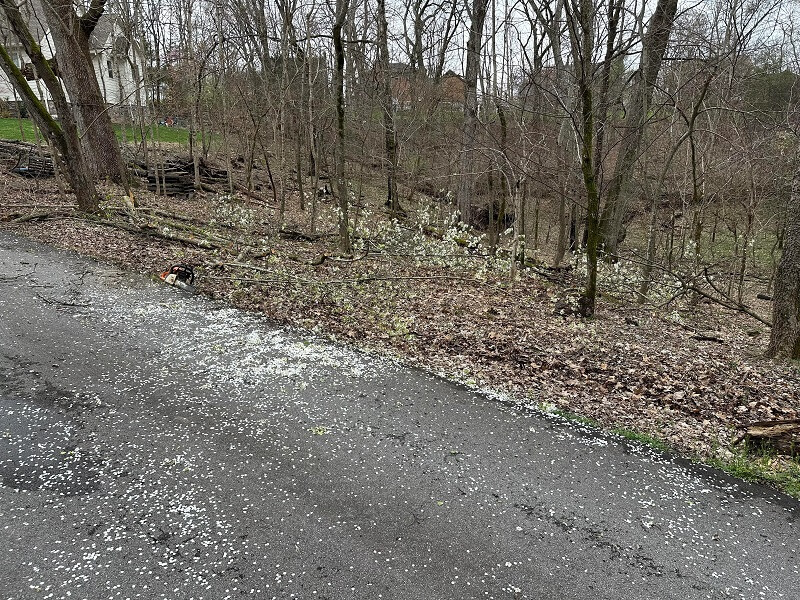A Tennessee resident got to work after realizing invasive trees were growing on his property.
The resident took to Reddit's r/arborists subreddit in a post outlining their battle against Bradford pears in their seven-acre forest.

After living on the property for six years, the homeowner noticed two mature Bradford pears — beautiful blooming trees but incredibly invasive to local plants and quite pungent.
The Redditor's plan was to remove the trees and replace them with plants and trees native to middle Tennessee.
The Bradford pear, originating from Asia, has become "Public Enemy No. 1 for many state conservationists and forestry officials," as reported by USA Today.
Because of its beautiful white bloom, it is frequently used as an attractive landscaping tree, but it is fast-growing, aggressively territorial, and eager to take over natural ecosystems. Bradford pears are also extremely difficult to eradicate.
Several states are taking action by banning sales and plating, ordering removals, and offering buyback and exchange programs where you can sign up to remove the invasive tree from your property to receive a native tree in return.
The Bradford pear is an example of why it's important to grow and maintain native plants that will thrive without causing harm to the environment around them. Cultivating a natural yard uses less water, less fertilizer, and zero pesticides to thrive, which saves a ton of money.
The natural lawn movement, including clover lawns, vegetable gardens, wildflowers, and no lawns, is a trend that supports local pollinators and wildlife by replacing manicured grass yards and imported plants with native plants, flowers, and vegetation.
Bees pollinate approximately 35% of food crops consumed by humans and 80% of all flowering plants. Our survival depends on them, so providing them with habitat is essential.
The post was applauded.
"It has to be done quickly," one comment warned.
"Thank you for your service," another one said with a salute emoji.
Join our free newsletter for easy tips to save more, waste less, and help yourself while helping the planet.









